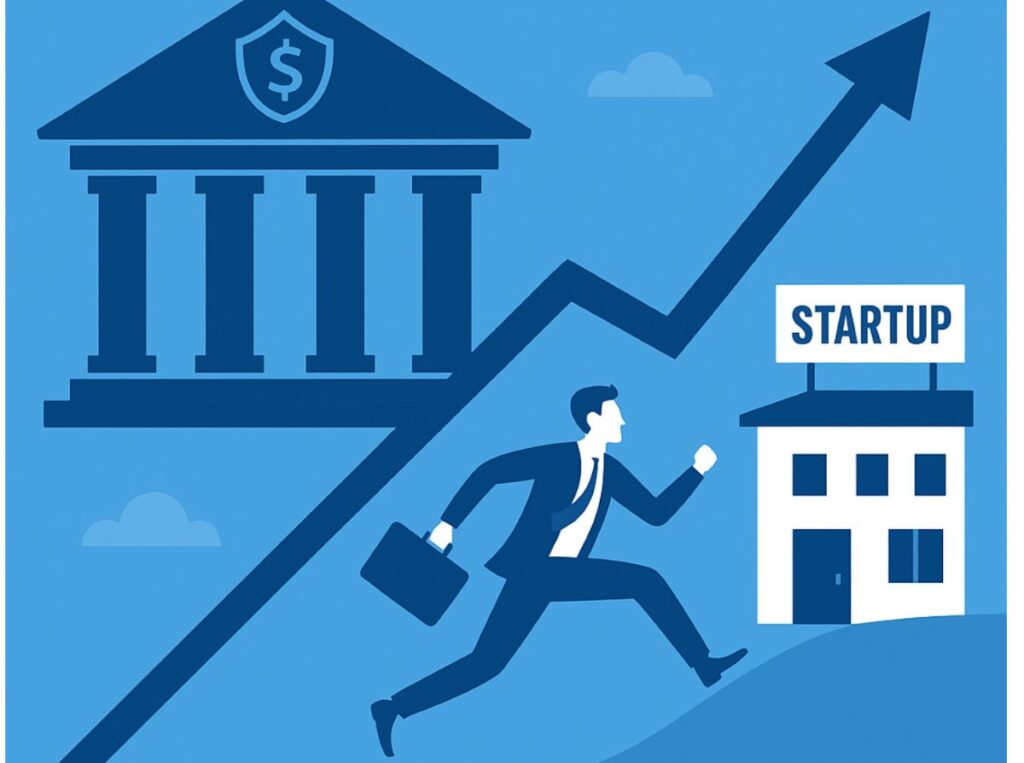Scaling a startup requires more than vision and innovation—it requires the right financial partner. The best banks supporting rapid scaling for startups in 2025 are not just service providers; they are strategic partners offering funding, financial tools, and global reach. Selecting the right bank can mean the difference between struggling with cash flow and unlocking international growth.

Why Choosing the Right Bank Matters for Startup Growth
For startups in high-growth industries such as fintech, SaaS, healthtech, or e-commerce, banking is not simply about storing funds. A suitable banking partner can provide:
- Access to venture debt and credit lines
- Cross-border payment solutions
- Investor-friendly structures
- Financial credibility when raising capital
Investors also tend to prefer startups that are backed by banks with strong reputations and proven startup–focused services.
Key Features Startups Need in a Bank
1. Access to Funding and Credit
Banks like JPMorgan Chase and Silicon Valley Bank offer credit lines, venture debt, and loans tailored to early-stage businesses. These financial tools allow startups to expand quickly without giving up too much equity to investors.
2. Global Payment and Treasury Services
Startups scaling internationally need banking partners with strong global networks. Services like currency hedging, cross-border payments, and treasury management help founders avoid costly inefficiencies.
3. Startup-Friendly Accounts
Fintech banks such as Mercury and Brex focus on providing low-fee accounts, fast onboarding, and seamless integrations with accounting tools—perfect for fast-moving founders.
4. Networking and Partnerships
Banks with startup ecosystems can connect founders to investors, accelerators, and mentors. Silicon Valley Bank has historically played this role, while Wells Fargo and JPMorgan run small business mentorship programs.
Top Banks Supporting Rapid Scaling for Startups in 2025
JPMorgan Chase
JPMorgan Chase is one of the largest banks in the U.S. and offers specialized business accounts, credit lines, and treasury services for startups. Its global presence makes it ideal for companies planning international expansion. Many venture-backed founders prefer JPMorgan for its credibility and access to complex financial products.
Mercury Bank
Mercury Bank has positioned itself as the go-to digital bank for startups. It offers venture debt programs, startup-friendly accounts, and integrations with popular tools like QuickBooks and Stripe. Its digital-first approach means no physical branches, but an intuitive platform tailored for founders.
Wells Fargo
Wells Fargo supports small businesses and startups with financing solutions, treasury management, and business credit cards. Its established reputation and extensive branch network make it a reliable option for founders seeking traditional banking with strong customer support.
Brex
Brex is a fintech solution rather than a traditional bank, but it plays a significant role for scaling startups. It provides corporate credit cards with flexible limits, expense management tools, and cash management accounts. High-growth startups often use Brex alongside traditional banks for added flexibility.
Silicon Valley Bank (SVB)
Silicon Valley Bank, despite its collapse in 2023, continues to serve startups under new ownership and restructuring. In 2025, SVB remains a leading choice for venture-backed companies due to its deep ecosystem connections, investor relationships, and tailored financial services.
Government & Nonprofit Resources for Startups
In addition to banking partners, founders should consider nonprofit and government resources:
- U.S. Small Business Administration (SBA) – Provides loans, grants, and startup funding support.
- Entrepreneurship.org – Nonprofit platform offering mentorship and resources for entrepreneurs.
These programs complement banks by offering non-dilutive funding and guidance.
Comparison Table: Best Banks for Startups in 2025
| Bank | Best For | Key Strengths | Limitations |
|---|---|---|---|
| JPMorgan Chase | Global expansion & credibility | Wide network, strong treasury services | Higher fees, traditional processes |
| Mercury Bank | Tech startups & digital-first ops | Venture debt, easy integrations, low fees | No physical branches |
| Wells Fargo | Traditional banking & local reach | Reliable support, wide branch network | Less tailored to tech startups |
| Brex | Fast-scaling startups & credit | Flexible corporate cards, expense management | Not a full-service bank |
| SVB | Venture-backed companies | Strong investor ecosystem, tailored services | Legacy concerns from 2023 crisis |
How to Choose the Best Bank for Your Startup in 2025
When evaluating banks, consider:
- Stage of growth – Are you an early-stage startup or preparing for international scaling?
- Funding needs – Do you require venture debt, credit lines, or just a low-fee business account?
- Investor expectations – Venture-backed investors may prefer established banks with credibility.
- Technology integration – Fintech banks like Mercury and Brex can save time with automation.
A hybrid approach often works best—many startups combine a traditional bank (like JPMorgan or Wells Fargo) for credibility and compliance with a fintech bank (like Mercury or Brex) for agility and modern tools.
Conclusion
The best banks supporting rapid scaling for startups in 2025 are those that combine credibility, funding solutions, and startup-friendly features. JPMorgan Chase and Wells Fargo offer strong traditional banking services, while Mercury and Brex provide modern, digital-first alternatives. Silicon Valley Bank continues to play an important role for venture-backed companies. Founders should also leverage resources from the U.S. Small Business Administration to maximize funding opportunities.
By carefully selecting the right banking partner—or a mix of partners—startups can accelerate growth, manage finances more effectively, and unlock global opportunities.